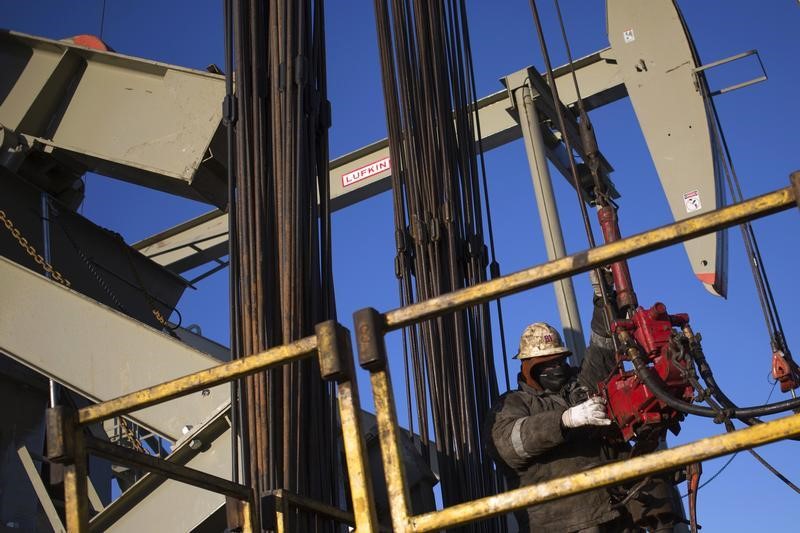Investing.com - Crude prices rebounded strongly in Asia on Wednesday after an unepected draw in U.S. crude stocks in industry data and as the market mulls a monthly report from OPEC on supply and demand.
On the New York Mercantile Exchange, West Texas Intermediate crude for April jumped 1.53% to $48.45 a barrel. On the ICE benchmark Brent for May delivery was last quoted up 0.33% to $51.83.
Crude inventories fell by 530,000 barrels in the U.S. at the end of last week, the American Petroleum Institute (API) reported on Tuesday, compared with expectations for a build. Refined products also eased more than seen as gasoline supplies fell by 3.88 million barrels, building on a 4.96 million barrels draw the previous week, and distillates dropped 4.07 million barrels.
The API figures are followed on Wednesday by official data from the U.S. Energy Information Administration (EIA) expected to show a 3.2 million barrel gain in crude stocks, while gasoline supplies fell by 1.98 million barrels and distillates declined 1.5 million barrels at the end of last week.
In figures released earlier Tuesday, OPEC said it met its output cut target and raised its global demand forecast to 1.26 million barrels per day (bpd) from 1.19 million bpd. The cartel also said its output fell by 140,000 bpd to 31.958 million barrels.
But the report, based on country figures and market sources, also said that output by the world's top exporter, Saudi Arabia, rose in February to 10.011 million bpd, with the figures at odds from earlier reports of output at 9.797 million bpd.
The report also revised up its estimate of oil supply from producers outside pact, notably U.S. shale drillers and said that OECD oil inventories were 278 million barrels above a 5-year average even as it supply and demand will come into balance in the second half of the year.
However, investment bank Goldman Sach said the report showed rebalancing in progress and supply and demand will align this year.
"Our expectations that inventories will draw through 2017 therefore leads us to expect that Brent time-spreads will continue to strengthen with the forward curve in backwardation by 3Q17," Goldman said in a research note to clients.
OPEC and non-OPEC countries made a strong start to lowering their oil output by almost 1.8 million bpd by the end of June, but so far the move has had little impact on inventory levels.
Kuwait is scheduled to host a ministerial meeting on March 26 comprising both OPEC and non-OPEC members to review compliance with the output agreement and to discuss whether cuts would be extended beyond June.
